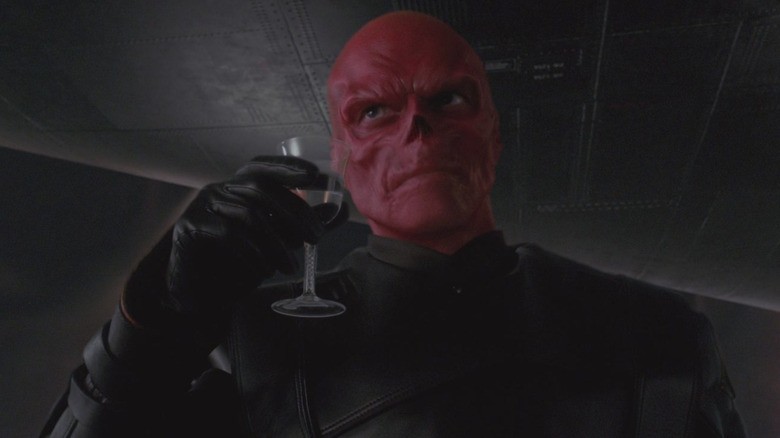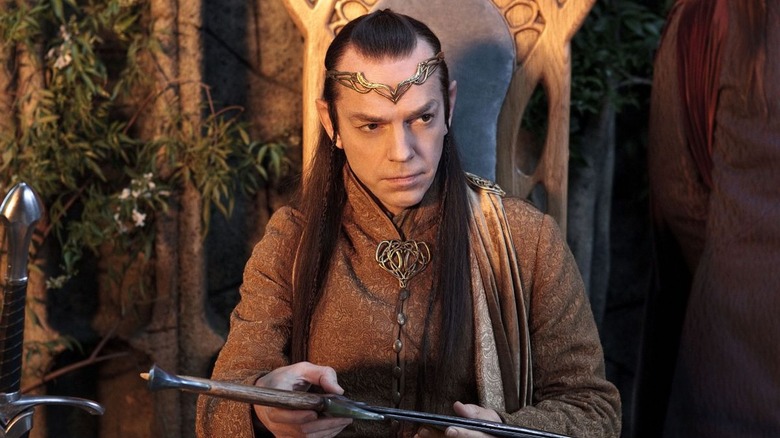Why Hugo Weaving Is Done Playing Villains
Hugo Weaving has played some iconic villains in his day. Sci-fi fans recognize him as Agent Smith, a digital character from the "Matrix" franchise who is worthy of his own spin-off. He was also the voice of Megatron in Michael Bay's initial "Transformers" trilogy. And, of course, the actor was the first man to don the infamous Red Skull persona in the Marvel Cinematic Universe.
However, it was that last villain that ultimately pushed Weaving away from playing the big baddies. In an interview with The Guardian, the actor said, "Villains are fun. But it got to the point where I thought each uber villain was going to bleed into the next. By the time I did Red Skull, I was thinking 'that's enough of that'."
Weaving's hesitations are well warranted. The actor's trademark voice and slow, somber acting style lend themselves well to antagonists from most stories, plots, and scenarios. But if you play too many villains in a row, it's easy to start seeing the actor rather than the individual characters. In that sense, Weaving, who has already made his villainous mark on Hollywood, is wise to avoid watering down the antagonistic tone with an oversaturation of threatening performances.
Hugo Weaving has also played plenty of heroic roles
While Huge Weaving may have established his career and garnered much of his recognizability from his villain performances, the English actor has also played plenty of more positive roles on the silver screen. The most iconic of these is Elrond of Rivendell. The half-elven leader plays a prominent role in Tolkien's world and was most recently portrayed by "Game of Thrones" alumnus Robert Aramayo in Amazon Studio's "The Rings of Power." However, before Aramayo donned the Elven leader's flowing clothing and somber overtones, Weaving played the part in not one but both of Peter Jackson's Middle-earth trilogies.
Weaving's part in "The Lord of the Rings" was more pronounced, even though he did get a decent amount of screen time in "The Hobbit" films, too. Interestingly, despite the more positive elements of the Elrond character (especially in contrast to the villains he's played), Weaving isn't interested in returning to that experience, either. In the same interview, he explained, "He wasn't the most satisfying character to play, to be honest. Elrond was a clothes horse and they gave me all the exposition!"
Whether it's avoiding overexposure as an on-screen villain or becoming wearied by the exposition of it all, Weaving is an actor who is willing to let go of a role when he knows it isn't right for him at this stage in his acting journey. It is a degree of wisdom that many of his fellow Hollywood elites could benefit from cultivating, too.

